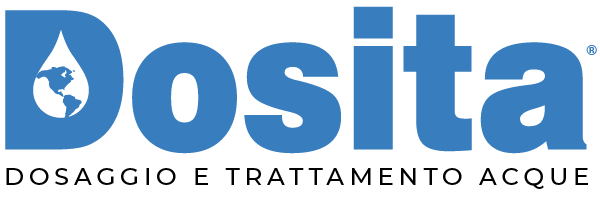Talking about cleaning in professional contexts – such as the HORECA, industrial or healthcare sectors – also involves talking about the dosage and dilution of detergents. This is a fundamental step to ensure not only the effectiveness in removing dirt, but also to preserve the safety of operators.
It should not be underestimated that overdosing on detergents for professional cleaning leads to waste of product, higher costs and the need to rinse the treated surface several times to remove the excess sanitizer (therefore also a waste of time).
Dosita srl is committed to finding the right balance between performance and costs, providing professional dosing systems and related dilution control systems to help companies increase the efficiency and productivity of their work, eliminating all risks.
The correct dosage and dilution of professional detergents are critical aspects to ensure efficient, safe and sustainable cleaning. For this reason, it is advisable to choose appropriate dosing systems to avoid wasting time, product and money.
Industrial dishwashers are essential in various sectors to ensure optimal efficiency in cleaning dishes. Here are some examples: restaurants, hotels, hospitals, schools and universities, catering and events.
Each sector has its own specific needs, but the common goal is always to ensure cleanliness and hygiene in the shortest possible time.
Automatic dispensers in industrial dishwashers are integrated to ensure precise and constant dosing of detergents and additives, improving the efficiency of the washing process. Here’s how they work:
Peristaltic dispensers
They use an elastic rubber tube that is compressed by rotating rollers, pushing the detergent through the tube. This method is precise and allows you to adjust the amount of detergent dispensed.
Membrane dispensers
They use oscillating membranes to suck up the detergent and dispense it. Although less precise than peristaltic dispensers, they are still effective.
Control systems
Dosers are often integrated with control systems that allow you to program the dosage based on the specific needs of the washing cycle. This includes signals for washing and rinsing, ensuring the right amount of detergent is used at each stage.
The integration of these dispensers allows you to optimize the use of detergents, reducing waste and improving the quality of the wash.
In many cases, the water used to feed industrial washing machines and dishwashers must be treated. This ensures a better quality of wash and prevents damage to the machinery. Here’s how it’s done:
Water softening
Hard water, rich in minerals such as calcium and magnesium, can create scale in the machinery. Using a softener reduces these minerals, protecting both the machinery and the fabrics and dishes.
Filtration
Removing solid particles and other impurities from the water to prevent them from damaging or blocking pipes.
pH adjustment
Maintaining the pH of the water within a certain range to optimize the effectiveness of detergents.
Anti-bacterial treatment
In some applications, especially in healthcare, the water may be treated with UV or other methods to eliminate any bacteria.
This water treatment not only ensures more effective washing, but also helps to extend the life of the equipment and reduce the use of detergents as they have a more effective action.



